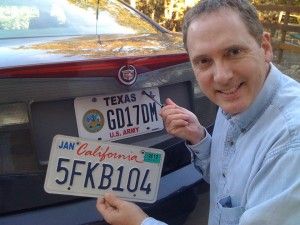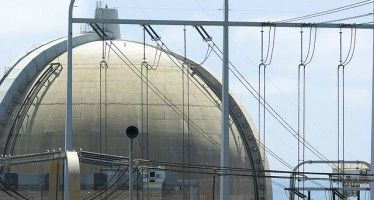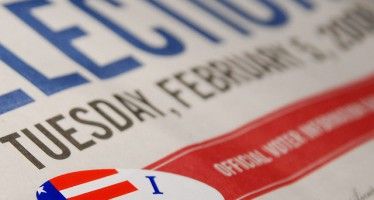DeVore: Numbers show Arnold’s tax increase cost jobs
By John Seiler
Remember how, in the Proposition 30 campaign, Gov. Jerry Brown insisted the massive tax increases wouldn’t chase rich folks out of California?
Former California Assemblyman Chuck DeVore, who recently moved to Texas, has the numbers proving him wrong:
“What few know is that California enacted a two-year tax hike in February 2009 at the height of the recession. When that tax hike quietly expired in 2011, it was likely the biggest Tax Cut at the state level in history.
“Here’s where things get really interesting.
“Starting with the end of the recession in June 2009, there were 19 months where California had higher taxes followed by 23 months of lower taxes. Then, last December, small business owners’ taxes spiked back up. The employment data for this period speaks volumes. During the low-tax months, the number of jobs in California increased by 2.7 percent, the number of jobs in Texas increased by 4.3 percent and the number of jobs in the U.S. as a whole, minus the two biggest states, increased by 2.4 percent. So California did pretty well, slightly outpacing the national average.
“But, during the 20 months of higher taxes, California lost about 1.1 percent of its jobs while Texas, which held the line on spending instead of increasing taxes, added 1.2 percent more jobs while the other 48 states lost 0.4 percent of their jobs.
“So after the recession’s official end, California lost jobs at almost triple the pace of the rest of the nation when it had higher taxes but it gained jobs faster than the national average during the two years when its taxes were lower.”
Brown might reply that Arnold’s 2009 tax increase of $13 billion was more than double Jerry’s $6 billion. But Arnold’s was for only two years, whereas Jerry’s is for seven.
And Brown might add that Arnold’s tax increases hit all income groups, whereas the bulk of Jerry’s hits those making $250,000 or more a year. But the monetary impact will be the same: Rich people will have less money to invest in creating new businesses and jobs, or maintaining current ones.
Cost-of-living
DeVore also points out, “The cost-of-living is 42 percent higher in California than it is in Texas, most of that due to hyper-restrictive land use policies and fees that artificially drive up California’s housing costs.”
Thea means you only need to make $178,000 a year to live like someone making $250,000 a year in California.
Or you only need to make $72,000 in Texas to live like someone making $100,000 in California.
Of course, the weather isn’t as good. And your Texas governor can’t remember his own campaign platform, whereas in California your governor mangles the classics.
And because so many people are leaving California for Texas, DeVore reports:
“Renting a 20-foot moving van from Altadena, California to Austin, Texas costs $1,768. Going from Texas to California costs $656. U-Haul has to pay people to “dead head” empty trucks from Texas back to California to meet demand. In fact, some two million more Americans left California in the past 10 years than moved into the state. That’s a lot of empty-moving-van trips.”
But otherwise, life is much better in Texas.
In his State of the State address, Gov. Brown insisted, “The message this year is clear: California has once again confounded our critics…. Against those who take pleasure, singing of our demise, California did the impossible.”
That’s true if you’re part of the government and will continue getting massive pay, perks and pensions — at last for now.
For the rest of us, it’s time for a bug-out plan.
Related Articles
Ruling adds to case against San Onofre settlement
A judicial ruling last week slamming Southern California Edison adds to pressure on the California Public Utilities Commission to abandon
Bullet train: Is L.A. Times’ beat reporter ashamed of edit page?
March 28, 2013 By Chris Reed There’s been quite a bit of good reporting done on the bullet-train fiasco. Mike
California gubernatorial race may hold key to boosting Republican turnout in 2018
With Republican gubernatorial candidate John Cox polling neck-and-neck with Antonio Villaraigosa for second place in the race for governor, the





